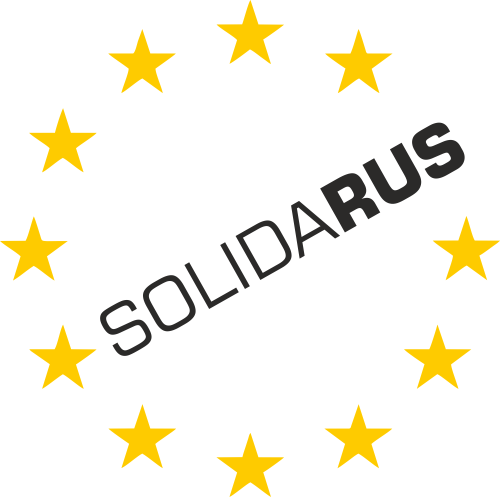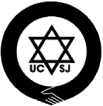Opposition leader and activist faces six years in prison for a Facebook repost: the case of Andrei Pivovarov
“Wow, what a situation. I did not expect that at all. I wanted to go on vacation, and then this happens: the police enter the plane and tell me: “You are on the federal wanted list.” What a crazy special operation, I was escorted from the plane minutes from take-off and arrested. What was the reason? I planned to run in the State Duma elections. That’s all. The case was fabricated in two days. Except for the immense desire of the Russian government to restrict political activity and silence the opposition, I see no other reasons.”
-Andrei Pivovarov in court on June 2, 2021
Case Background
In 2015, the Russian government created a new law on “undesirable organizations”. According to this law, any organization that, in the view of the Kremlin, “undermines the safety, security, and the constitutional order” of the country can be declared undesirable. The law, however, is unconstitutional, as it encroaches on the right to freedom of expression guaranteed by the Russian constitution.
Organizations that have so far been targeted by this regulation, work in international education and cultural exchange, or advance political and economic development of Russia. All of them do so by peaceful, non-violent and legal means. Currently, there are 35 undesirable organizations both in Russia and abroad, and the list will likely keep growing. The law has unleashed a new wave of oppression against these groups, with their employees and even volunteers facing home raids, interrogation, and incarcerations.
Case defendant
Since 2018, Andrei Pivovarov, one of the most prominent leaders of the democratic opposition in Russia, has served as the Executive Director of the Open Russia.
The goals of this organization included “strengthening relations between the state and society in Russia, promoting free and fair elections, and ensuring rights and freedoms of the Russian citizens.” Such activities are lawful and common in any democratic society. Open Russia activities and methods have always been peaceful and never supported destructive methods of building democracy in the country. Nevertheless, for the past 5-6 years, Open Russia’s staff members, such as like Yana Antonova, Anastasia Shevchenko, and Mikhail Iosilevich, have been harassed by the officials, interrogated, and prosecuted on false charges.
Since 2015, Andrei Pivovarov has faced four administrative and criminal charges ostensibly due to his affiliation with Open Russia. The Memorial Human Rights Center has concluded that all of the charges against Mr. Pivovarov c are baseless, have no constructive evidence, and were imposed on him solely because Putin’s regime feels threatened by him. Charges against Mr. Pivovarov are nothing but the Kremlin’s attempt to silence this activist and stop his legal political and social activities. Pivovarov has already been recognized as a political prisoner by the Memorial Center in 2015, when he was falsely accused of bribery and abuse of authority. A few weeks ago, he was granted this status again.
On May 27, 2021, Andrei Pivovarov publicly announced the dissolution of Open Russia. He did so preemptively— as the organization had not yet been declared undesirable. However, Mr. Pivovarov anticipated that, in light of increased political repressions, it was forthcoming. He did not want to put his people at risk of being thrown in prison at Putin’s command for trying to restore democracy in Russia. In his video address publicized on May 27, as well as in his media interviews that followed the announcement, he explained the rationale behind this decision.
On May 31, Mr. Pivovarov was getting ready to fly to Poland for vacation. Minutes before his plane’s take off, the police stormed the plane, arrested Andrei and hauled him away. He was taken to the Investigation Committee where he learned he was being charged for cooperation with an undesirable organization (under Article 284.1 of the Criminal Code of Russia).
A few days later, the police raided Pivovarov’s house in St. Petersburg. Mr. Pivovarov was transported to Krasnodar for trial. This was when he was informed that he was facing six years of prison for a repost on Facebook from the “United Democrats” page made a year ago about supporting candidates on municipal elections.
According to Andrei Pivovarov’s lawyer, the post in question was not even published by him. Anna Kuznetsova, one of Mr. Pivovarov’s page administrators, admitted to publishing the post which was also certified by a notarized technical expertise. Andrei’s lawyer filed an appeal citing Ms. Kuznetsova and the conclusion of the expertise demanding the immediate release of Andrei Pivovarov, but the court ignored his petition. On June 2, after a court hearing, Mr. Pivovarov’s detention was extended to two months.
The Memorial Center believes the persecution of Andrei Pivovarov is directly related to Mr. Pivovarov’s announcement to run for the State Duma as an independent opposition candidate in September of this year. His arrest is a part of the Kremlin’s efforts to clear the political field before the elections, eliminating all independent candidates and viable competitors.
Why the Memorial Human Rights Center recognizes Andrei Pivovarov as a political prisoner?
- The law on undesirable organizations is unconstitutional — it contradicts the right to freedom of expression enshrined in the constitution of the Russian Federation. The definition of an “undesirable” organization is vague and allows for arbitrary interpretation, and the fact that the organizations are recognized as undesirable without any trial and behind closed doors is outrageous. It assumes the absolute subjectivity and groundlessness of such decisions with the complete absence of evidence-based argumentation and transparency of the procedure. In the case of Open Russia, the organization does not in any way fall under these vague criteria, and there is no reason to assert that it poses a threat to the country.
- The law on undesirable organizations is unconstitutional — it contradicts the right to freedom of expression enshrined in the constitution of the Russian Federation. The definition of an “undesirable” organization is vague and allows for arbitrary interpretation, and the fact that the organizations are recognized as undesirable without any trial and behind closed doors is outrageous. It assumes the absolute subjectivity and groundlessness of such decisions with the complete absence of evidence-based argumentation and transparency of the procedure. In the case of Open Russia, the organization does not in any way fall under these vague criteria, and there is no reason to assert that it poses a threat to the country.
Consequently, when the case against Pivovarov was opened, the charges against him included leading the undesirable organization registered in the UK rather than the one in Russia. Unsurprisingly, no objective evidence was presented to support this claim. Moreover, a study of public registry indicates that British organizations that were declared undesirable in 2017 never, in fact, existed. Therefore, it allows one to assume that all these manipulations were done to target Open Russia led by Pivovarov at some point in time.
- Andrei Pivovarov’s prosecution even contradicts the undesirable organizations law itself. Mr. Pivovarov was detained three days after he announced the dissolution of Open Russia. The law states that “a person who voluntarily stopped participating in the activities of an undesirable organization is exempt from criminal liability.”
- Andrei Pivovarov’s prosecution even contradicts the undesirable organizations law itself. Mr. Pivovarov was detained three days after he announced the dissolution of Open Russia. The law states that “a person who voluntarily stopped participating in the activities of an undesirable organization is exempt from criminal liability.”
The Memorial Center asserts that the criminal charges against Andrei Pivovarov are part of the massive campaign of political repressions, and demands that they are dropped immediately, and the persecution and pressuring of the independent candidates and their lawful activities are stopped at once.













